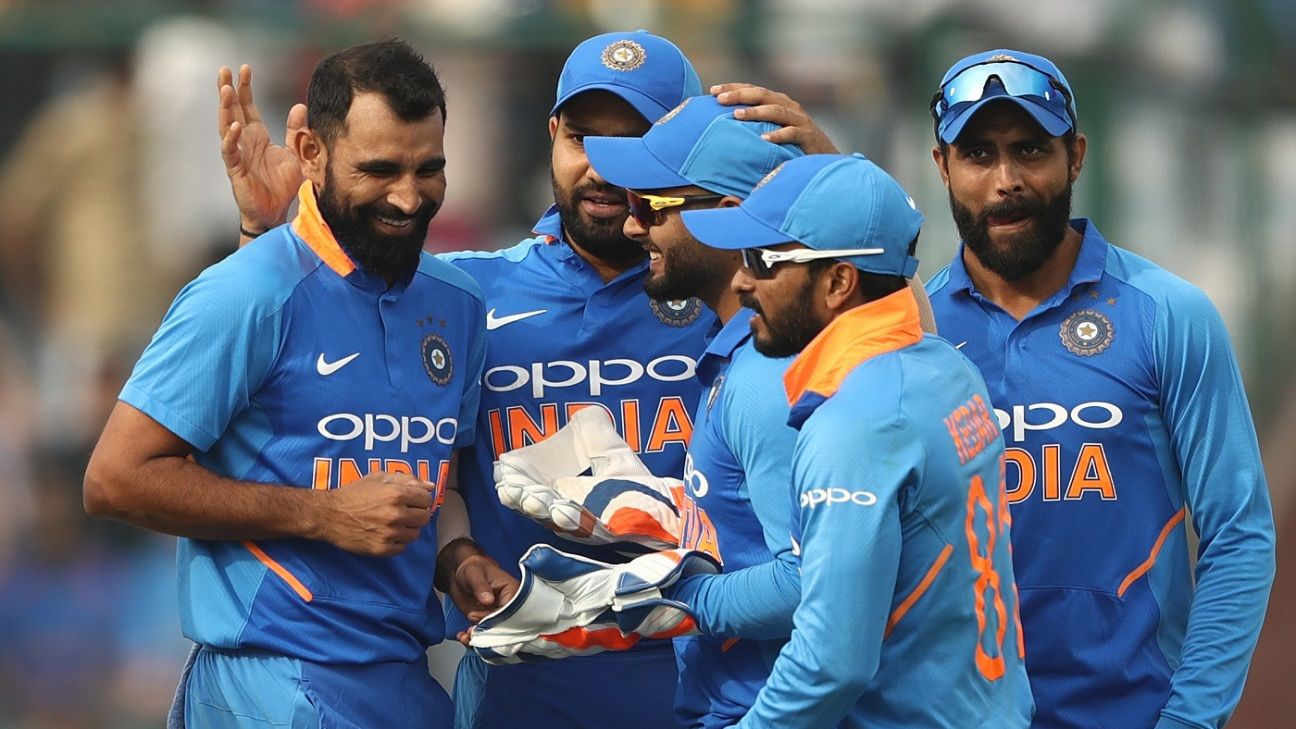
Since the start of 2018, India have taken more wickets than any other team in ODI cricket, at a better average than any other Full Member team barring Afghanistan. These are highly encouraging numbers for a team heading into a World Cup, and Mohammed Shami is proud of being part of an attack that is considered among the best in the world.
Fast bowlers Shami, Jasprit Bumrah and Bhuvneshwar Kumar are key components of India's attack, and their USP, according to Shami, is their ability to bowl skillfully at high pace.
"In the last 20 or 30 years, if you look back at the history of Indian cricket, it has always been dominated by the batsmen. You cannot really blame the bowlers because the wickets that were prepared in India were also not helpful towards the bowlers," Shami told IANS. "Things have started improving in the last five to seven years and, to be honest, it has been a process and not something that has happened overnight. We have been bowling as a unit and that helps.
"The best part is that along with variety, we have an attack that can bowl fast. Having skills and pace together is the USP of this side as that somewhere increases the confidence of the attack. To be honest, it is like a dream that has come true and I feel very proud that today people talk about our bowling unit as one of the best - a thing that wasn't heard much, but is now called our strength."
Shami was the leader of India's pace attack at the 2015 World Cup, picking up 17 wickets in the tournament at an average of 17.29. After that, however, injuries and the emergence of new talent limited his white-ball opportunities even as he remained a vital member of India's Test attack. Between India's semifinal exit in Sydney and the end of 2018, Shami only played five ODIs.
Since the start of this year, however, he has been India's most incisive new-ball operator in ODIs, and has picked up 19 wickets in 11 matches at an average of 26.42.
"I hadn't been playing white-ball cricket for a while but in the series against Australia, I gained in confidence and just looked to keep that going even in the IPL," he said. "Also, playing consistently for KXIP (Kings XI Punjab) helped me. Getting to play day-in day-out helps you perform and get the right momentum.
"I was just waiting for an opportunity as I had a good record in white-ball cricket. Waited for almost two years and I had it in mind that when I did get the chance, I will show what I could do. Always knew that I can adapt to the shorter format and bowl the line and length required to succeed."














 Phone: (800) 737. 6040
Phone: (800) 737. 6040 Fax: (800) 825 5558
Fax: (800) 825 5558 Website:
Website:  Email:
Email: 






